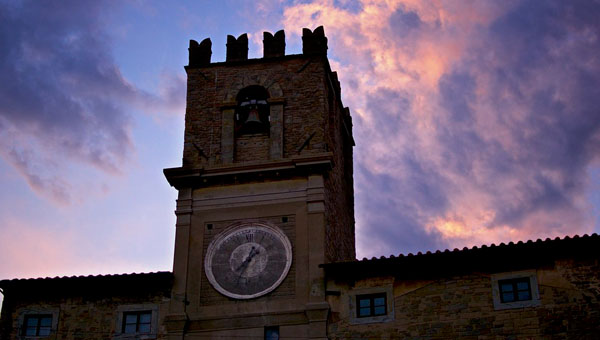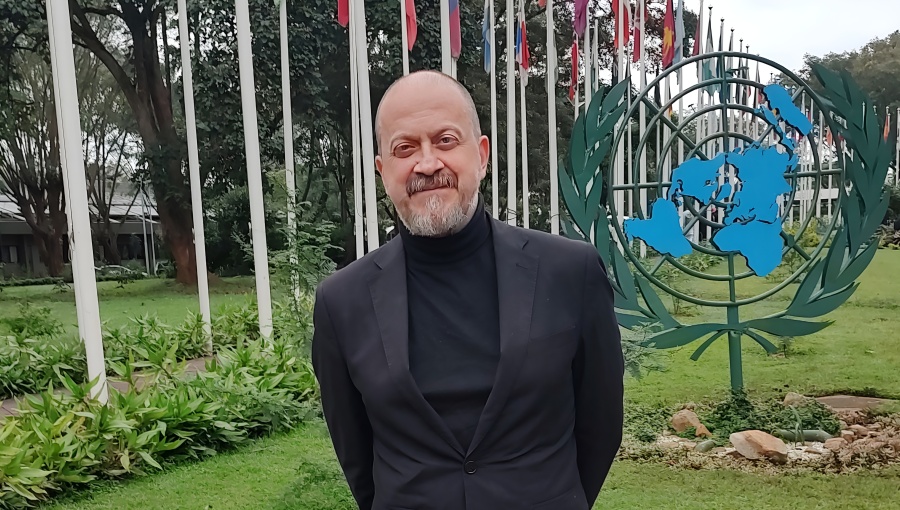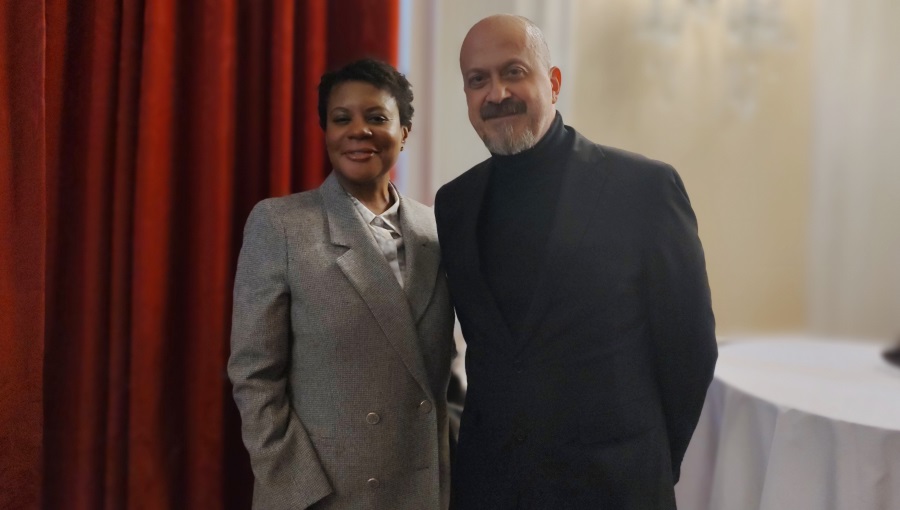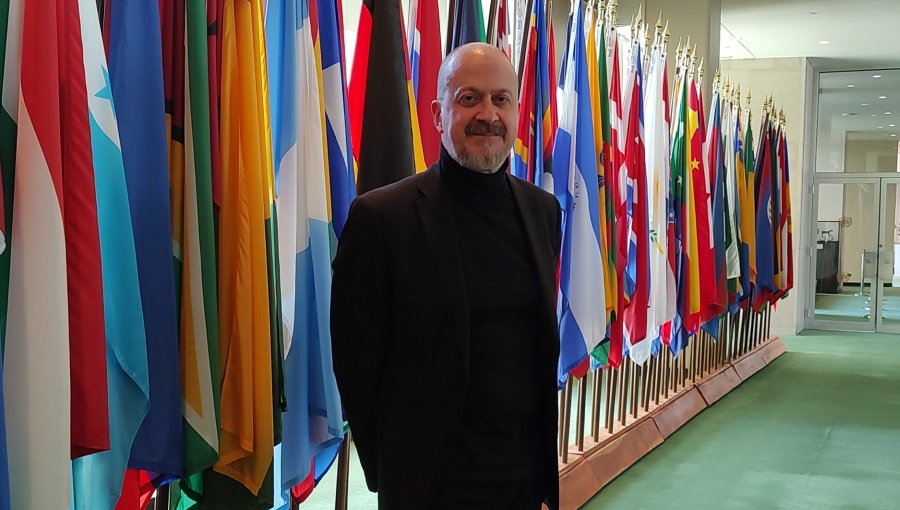Institute of Future and Innovation Studies Welcomes Franco Giovannelli
The JCU Institute of Future and Innovation Studies welcomed astrophysicist and author Franco Giovannelli for a lecture titled “The Impact of Space Experiments on Our Knowledge of the Universe,” on November 27, 2021. The talk was the last event of the 2021 Cortona Pearls, a joint seminar series with Cortona Friends, carried out as a discussion platform bridging humanities and STEM.

Sunset in Cortona by Antonio Cinotti
Giovannelli briefly explained how the progression of scientific discoveries in the past century led to new ways of seeing and understanding the universe. He highlighted the discrepancy between the impressive density of recent scientific breakthroughs and the vastness of what still remains unknown. For example, in 2019 the Event Horizon Telescope was used to produce the first-ever image of a black hole. However, as Giovannelli pointed out, 22% of the universe consists of dark matter and 73% of dark energy, the origin of which is still unknown. Hence, Giovannelli indicated that “we know roughly only 5% of the matter of the universe.”
Giovannelli argued that one of the principal cognitive challenges in furthering our knowledge of the universe is to expand the research outside our own galaxy. Each year, Giovannelli said, the number of planets discovered is expanding. The search for habitable zones outside the Milky Way will lead the number of detected planets to grow even faster. But searching for new planets comes not only from the urge to understand the universe better but also from the quest to discover new forms of life in the universe. “We expect about 400-500 billion planets to exist, so it could be said that life is widespread in the universe,” Giovannelli suggested. Yet one of the limits of scientific knowledge so far has been that no one has been able to give a hint of how life might have started. If the probability of life occurring on a planet is almost equal to zero, then billions of planets existing across the universe do not imply that life is a widespread phenomenon.
Giovannelli suggested that our path to further the knowledge of the world has been one of crushing boundaries that obscure the view of the world. Science has been devoted to designing tools that allow for exploring different aspects of the world and the universe. While certain elements become more visible, others are still hidden and unreachable; therefore, “we are very good at detecting only certain things but not others,” Giovannelli added. What is crucial to understand, he elaborated, is that such a selective view of the world goes against the fact that all elements in the universe are, in fact, connected. “No object in the universe can survive without other objects. The universe could be considered a living being where all the elements have their own necessity of acting to maintain its order,” Giovanelli said. Such a holistic view of the universe, if applied to science, might aid in merging different fields of knowledge, such as physics and philosophy. An interdisciplinary approach could help in explaining what thus far still remains unexplainable, Giovanelli concluded.





